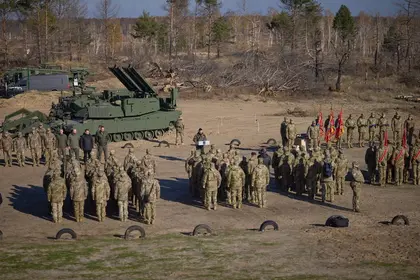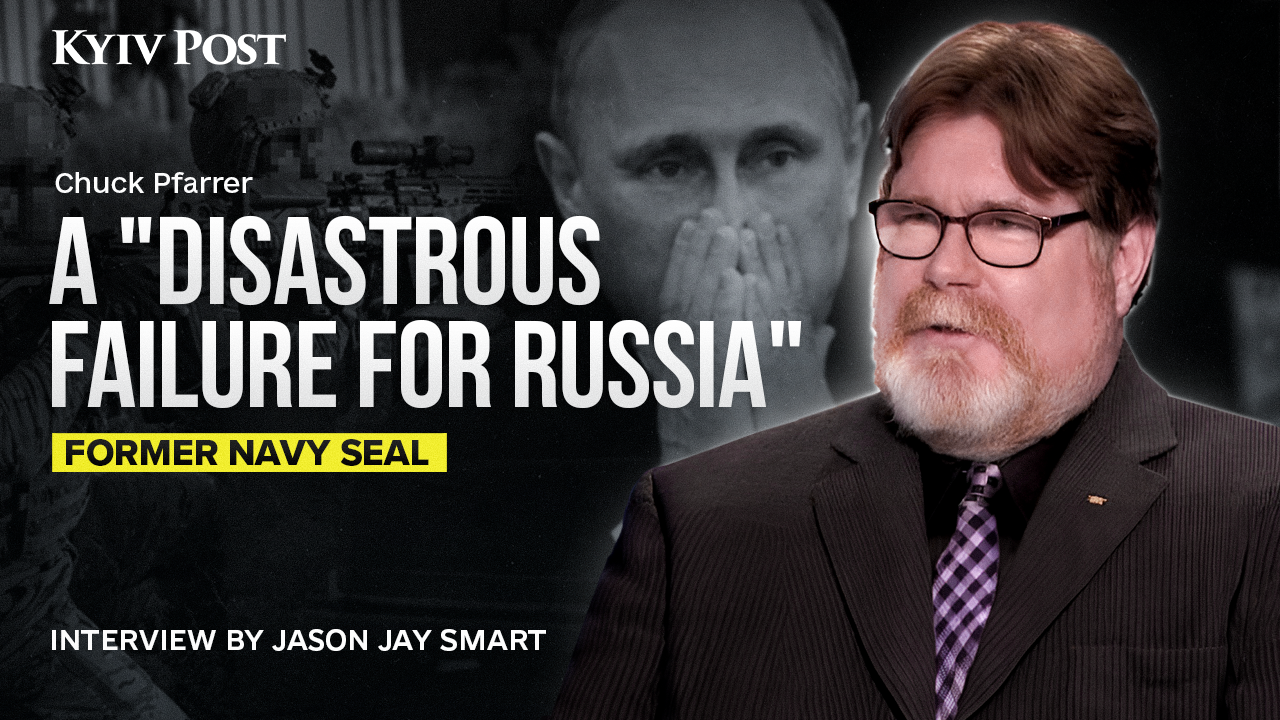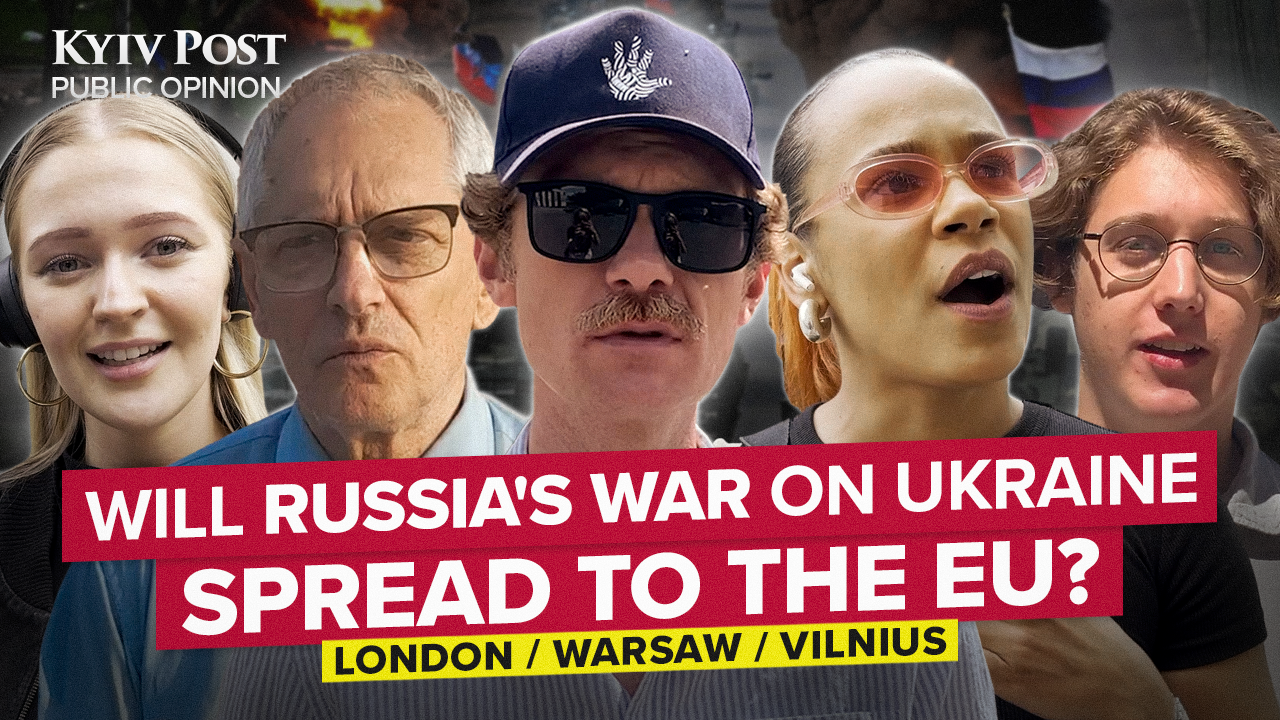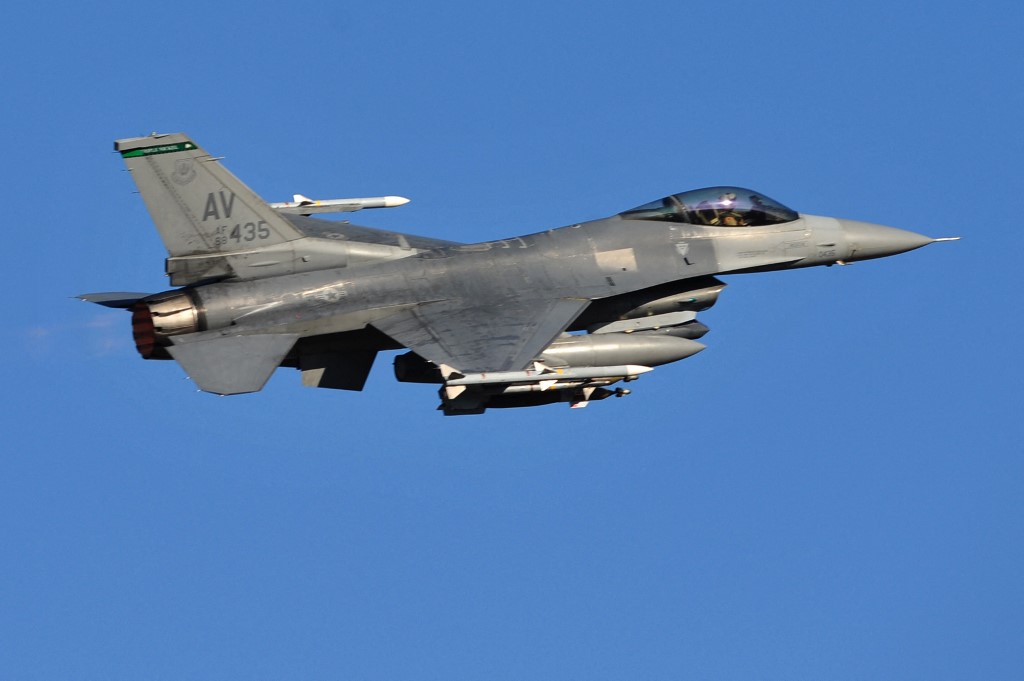From the Editors: This is the fourth of a five-part analysis. See Part 1, Part 2, Part 3, and Part 4 here.
Ukraine fatigue
JOIN US ON TELEGRAM
Follow our coverage of the war on the @Kyivpost_official.
The term “Ukraine fatigue” is increasingly used by the media and analysts. It is often used in connection with opinion polls reflecting reduced support for Ukraine, reduced media coverage. It is also seen as a symptom of the increasingly slower and more incremental inflow of weapons and ammunition and a consequence of the perceived lack of success of the Ukrainian counter-offensive. It has been used more often as the war is believed to become “positional” and Western fears of a protracted war increase.
It is meant to describe an apparent waning interest and willingness to support Ukraine. I stress “apparent” because the term has been used since 1991. Years later, the international community has never been more committed to Ukraine and is actively working to integrate Ukraine into both the EU and NATO.
Apparent, because the US and Europe cannot stop supporting Ukraine. An independent, sovereign, and complete Ukraine is a prerequisite for European security. The consequences of its defeat are devastating and unacceptable.
Apparent, because ignoring Ukraine’s fight means ignoring Russia and the threat it represents to all what we are and the values and principles that guide us. Ukraine is after all only an object in a broader confrontation between the autocratic “Russian World” and the liberal democracies of the West.

EU Transfers €1.5 Bln Raised From Russian Assets for Ukraine
Last year, Alexander J. Motyl argued that: “Ukraine fatigue is a strange kind of fatigue, since it’s been coming and going every few years since 1991, when Ukraine became independent. But the West doesn’t seem to be getting cumulatively more tired. Instead, there’s a persistent pattern to the fatigue. The West first gets excited about Ukraine’s prospects for something or other, and then it gets enervated by the waiting and the seeming lack of progress.
“The fatigue is thus a product, not so much of anything Ukraine does or does not do, but of the West’s impatience or exalted expectations. Were the West’s attitude toward Ukraine guided less by emotion and more by reason, were the West guided more by knowledge and less by hope, the fatigue – which is really the disappointment that follows unrealistic expectations – would be far less likely.”
The simple fact is that the West cannot risk Ukraine being defeated.
The EU’s High Representative of the Union for Foreign Affairs and Security Policy’s statement that “If Ukraine loses, we lose,” stressing that the coming months will be defining for global peace and the future of the world, underlines the point. “Ukraine fatigue” does not exist.
The so-called “failed counteroffensive”
The counteroffensive that started on June 4 is not the operation Gen. Zaluzhny was planning. He had executed an operation limited in scale and scope because he acknowledged that he lacked the means to maneuver effectively. The Ukrainian Armed Forces lacked air power, air defence, mine clearance capacity, main battle tanks and armored vehicles – and, not least, ammunition.
Ukraine was encouraged to conduct an offensive no NATO member – including the US – would ever try to endeavor.
Ukraine’s international partners built unrealistic expectations of a decisive breakthrough. Ukraine tried its very best to lower the expectations this spring as it knew they were facing an enemy that had dug in, fortified and established a layered defense (consisting of all the means Ukraine lacked).
In May, when asked when the counteroffensive would begin, Advisor to the Head of the Office of the President of Ukraine, Mykhailo Podoliak, stressed that “the counteroffensive was not a one-off event that might start today and end tomorrow, but a multitude of actions, dozens, even hundreds of actions.” His message was very much in line with the strategic messaging of both President Zelensky, Minister of Foreign Affairs and Minister of Defense.
President Zelensky described it as the “first important steps” (as in the first of many steps). Ukraine was waiting for the pledged weapons to be delivered. Recognizing that the offensive would start without sufficient air power, he stressed Ukraine’s urgent need for Western-produced combat aircraft to support and protect the ground forces.
Foreign Minister Dmytro Kuleba stressed that one should not assume that the counteroffensive would be the last one. “If we succeed in liberating our territories with this counteroffensive, you can say it was the last one, but if not, we have to prepare for the next,” Kuleba said.
Acknowledging Ukrainian shortcomings and Russia’s extensive preparations for the forthcoming Ukrainian counteroffensive, the former Minister of Defence Oleksiy Reznikov was trying to manage expectations. “The expectation from our counteroffensive campaign is overestimated in the world… Most people are… waiting for something huge.”
Gen. Zaluzhny understood what his international partners did not: the extent of Russian defensive preparations and the increasing impact of drone warfare. Most importantly, he acknowledged the UAF’s shortcomings and the impact of the drone war.
While the Armed Forces of Ukraine (AFU) may not have liberated huge chunks of territory since June 4, they have done something equally impressive.
It has greatly reduced the Russian military power. It has liquidated more than 140,000 soldiers and destroyed more than 2,000 tanks, 3,300 armored vehicles, 4,700 pieces of artillery, 350 MLRS, 280 Air Defence Systems, and 4,600 trucks. While Russia can replace the manpower (lacking experience and motivation), it is unable to replace the losses of equipment. Russia is increasingly fielding heavy weapons produced in the 1950s, 60s and 70s for lack of options.
Ukraine’s capability increasing as Russia’s declines
Ukraine still has access to more than 95 percent of all weapons systems supplied by the West. Many systems have not yet reached the battlefield, including 170 of the 200 pledged German Leopard 1 tanks. The 31 Abrams provided by the US arrived in Ukraine more than 3 months after the counteroffensive started and as cross-country mobility declined due to rain and mud.
In 2024, the AFU will have the tools it is presently lacking. F-16s will be operating over Ukraine. The inflow of ammunition will gradually increase. The Russian fortifications will be no less difficult to breach. Next summer, however, it will lack even more tanks, APC, artillery, MLRS, AD and not least, experienced, and motivated personnel.
Russia has achieved no victories in 2023 thanks to both Ukrainian bravery, resolve and resilience as well as its successful counteroffensive strategy.
The simple fact is that the West cannot risk Ukraine being defeated
Western strategic awakening
Increasingly more Western leaders are acknowledging the broader confrontation and what is at stake: European security and the international security architecture.
NATO acknowledges that “the Russian Federation has violated the norms and principles that contributed to a stable and predictable European security order. We cannot discount the possibility of an attack against Allies’ sovereignty and territorial integrity.”
The West is slowly ramping up its DIB production and rebuilding its Armed Forces. Germany is – along with several other European countries – considering reintroducing compulsory military conscription. These are but some of the signals of NATO and member states understanding that it was never a “Russia-Ukraine war” but always a broader confrontation. They cannot let Russia be victorious in Ukraine.
So, what now?
It is easy to fall into a state of despair as Russia’s war reaches its tenth anniversary, and two years after the full-scale war started. Russia’s appetite to inflict and sustain suffering and devastation is seemingly unlimited. NATO’s will and ability to stop a war undermining European security is, by contrast, still limited – limited by lack of political will, lack of military capability and failure to respond to a war in Europe starting in 2014. The information space is being shaped to create gloom and defeatism in both Ukraine and the West.
The situation is, however, not all black. NATO still possesses the tools needed to end it on Ukrainian terms.
Ukraine is facing temporary logistical challenges that will force it to change its strategy during the next six months. These problems will, however, pass in 2024 as some of the problems will be resolved.
For Ukraine
Logistics will define 2024. The inflow of ammunition is already limiting Ukraine’s ability to conduct offensive operations. Reduced access to ammunition will likely remain a defining factor in the first six months of 2024. The Western production capability will, however, gradually improve. This will most likely coincide with the delivery of F-16s and additional air defense systems.
Acknowledging that the tools Ukraine needs to start liberating occupied territories will likely be unavailable until summer, Ukraine will dig in and fortify its present positions to preserve manpower. It will force Russian soldiers to advance against well-fortified positions and consequently, continue suffering massive losses. At the end of December, Russia will most likely have lost more men than any other month since the start of the full-scale war (October: 22,700. November: 27,750, December: 31,500).
Active defense will allow Ukraine to preserve ammunition, build stockpiles, receive missing equipment, mobilize, and train new soldiers, and not least, allow for a rotation of those who have held the frontline for two years already. A rotation will not only benefit the individual soldier and his/her family but also establish a reserve of 450-500,000 soldiers. Ukraine’s resilience will increase next year.
Ukraine will strengthen its ability to strike military targets in Russia and on occupied territories. It has already succeeded in reducing Russia’s fleet of strategic bombers and the BSF.
It is crucial to uphold and strengthen these efforts, as Russia will continue its efforts to destroy Ukraine. Russia knows that Ukraine will experience a temporary reduction of defense aid. It also knows that it will pass and that Ukraine will be in a better position to cause damage from the summer of 2024. It will, consequently, try to gain the initiative in the months to come.
Recognizing that the battle is fought in multiple dimensions – both non-military and military; on land, in the air, at sea and in cyberspace – the war will remain dynamic next year
The ever-evolving drone war may in the worst case, decide the outcome of the war. The side that develops both the quantitative and qualitative advantage – automatization, “drone swarms,” use of AI enabling the drone itself to recognize the target and the decision to strike – may reintroduce maneuver war and force the opponent to retreat. The need for effective counter-drone systems will be equally crucial. Currently, Russia seems to have an edge in both fields.
Strikes deep in Russia’s territory have a psychological impact on both Russia and Ukraine. It will both demonstrate Ukrainian resolve and undermine the Kremlin. Ukrainian strikes will help shape the battlefield.
For the West
Russia believes it is winning. The West is still governed by fear of escalation, restraining its involvement in Ukraine in contradiction with its past strategic thinking.
The West’s fear of a protracted war ten years after it started is a sign of flawed situational awareness.
The New York Times recently reported that “Without both a new strategy and additional funding, American officials say Ukraine could lose the war.” I agree but not in the context intended. Ukraine has a clear end state and a strategy to achieve it. Lack of Western commitment, however, might stop Ukraine from achieving it.
If the West does not change its strategy, Europe risks losing
Russia will likely continue to develop its DIB. It is presently investing far more in the security and defense sector in relative terms than NATO. The majority of the member states fail to invest 2 percent of GDP, while Russia’s military spending in 2024 will increase to 7.1 percent of its GDP, accounting for 35 percent of total government spending. It is preparing for a long war, knowing that the West is not. Europe urgently needs to ramp up its DIB and investment in security and defense next year. This becomes increasingly more important as sanctions are losing their effect and Russia is ramping up its production of weapons and ammunition.
In 2024 the West must start developing a strategy based on the enduring factors listed earlier.
- Russian aims and objectives remain unchanged over 10 years.
- The war is a part of a broader confrontation between Russia and the West.
- The war is fundamental and cannot be resolved through negotiations.
- Russian suggestions about negotiations are only used to weaken Western resolve and reduce its support of Ukraine.
- Russia will never accept being defeated by Ukraine.
Even if the West gets its act together and provides Ukraine with the tools it needs to evict the Russian Armed Forces, Russia will never accept being defeated by a nation that in its mindset does not exist. It can only be defeated by NATO or a coalition of the willing. The only feasible off-ramp for Putin is a Ukrainian NATO membership or a military intervention. Hopefully, this will happen no later than the Washington Summit in July 2024.
Ironically, if President Biden truly wants to secure future support for Ukraine, he only needs to support its NATO membership. That would make further support directly linked to the Washington Treaty.
Will NATO act according to its 2010 Strategic Concept and intervene militarily in 2024? Will it make Ukraine a NATO member and provide Putin with an off-ramp? Hopefully.
The West is fast running out of options
Collective Defense is all about “putting out the fire in one’s own house.” Crisis management, however, is all about “putting out the fire in your neighbor’s house before it spreads to one’s own.” NATO has until now decided to only send some of its tools to help Ukraine fight the fire. It has not sent enough, and not all the tools it has available. Consequently, the fire is gradually increasing in scope and scale.
It cannot allow Russia to be victorious. If it is allowed to integrate both Ukraine and Belarus into the Russian Federation, Europe will have an aggressive, emboldened, battle-hardened and far stronger great power at its border aiming to exert its influence over the continent. The consequences would be devastating.
NATO member states have several critical vulnerabilities because of failing to invest in security and defense for the last 30 years. The Alliance lacks a land force capable of fighting a high-intensity modern war. It lacks sustainability. It cannot operate in a high-density EW environment. It has not yet mobilized its total defense, including its industrial base. It is unprepared for a continuously evolving drone war.
Ukraine has what NATO lacks and the other way around. NATO has the world’s largest air and maritime power
Joining forces makes sense on so many levels. Firstly, it would fundamentally shift the military balance in favor of Ukraine. Secondly, it would offer Putin an off-ramp and a chance to withdraw in the face of a superior opponent. Thirdly, it would re-establish NATO deterrence through a demonstration of both will and capability. Lastly, it would end the war, possibly without having to use military power.
I believe the West will gradually change its strategy in 2024 because it is running out of options as it is slowly coming to terms with an imperialistic, aggressive Russia threatening our way of life.
The hope for negotiations and compromise (at the cost of Ukrainian territorial integrity) will disappear. If we have learned anything from the first eight years of the war, negotiations are futile. Russia started a war only to introduce the hope of a political solution that would serve its interest: the subjugation of Ukraine through political means. It introduced negotiations to ensure the West remained detached and to stop defense aid to Ukraine.
The time for diplomacy is behind us. The West must stay focused on what is slowly evolving to become an existential threat.
NATO needs to start putting out fires before Europe once again is in flames. It can only be done in partnership with Ukraine.
The views expressed in this opinion article are the author’s and not necessarily those of Kyiv Post.
You can also highlight the text and press Ctrl + Enter









